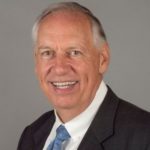
Op-Ed: The Bible Should Be Your Foundation in Debate - Even with Unbelievers
The Bible testifies more than 2,000 times that it is the Word of God. Because that is true, we should be using it as our guide — especially in political debate. It should be our source of ultimate certitude, our guide as to what is right and our basis for personal convictions.
But today there are many well-meaning Christians in the political realm who reason that since the secular world does not believe in the authority and inspiration of Scripture, they shouldn’t reason from the Bible or use Scripture in debate. They anticipate that others will respond with, “Well, I don’t believe the Bible.”
So, should that anticipated negative response determine your use of the Bible? Is Scripture not really living and active and sharper than any two-edged sword (Hebrews 4:12), as it claims to be? What is your response to this dilemma?
Romans 1 and 2 should inform our response to that question. Romans 1:19 states clearly that “that which is known about God is evident within them.” Romans 2:15 adds, “They show the work of Law written in their hearts, their conscience testifying and their thoughts alternately accusing or else defending them.”
The testimony of the Word of God is clear on this subject: Unbelievers do believe in the authority of the Bible, it’s just that they suppress it. Therefore, it is incumbent on you and me to lovingly help them not suppress what they internally and inherently know to be true!
It follows that when a person says in response to your use of Scripture to make your point, “Well, I don’t believe the Bible,” your response should be, “Oh yes, you do — God wrote his Word on your heart.”
A back-and-forth conversation usually ensues, but at the end of the day you should say, “If you are asking me to believe what you state about the Bible versus what the Bible states about you, I choose the Bible.”
This is known as presuppositional apologetics. I love presuppositional apologetics because it keeps you on the offensive. I don’t have to waste my time with anyone trying to convince them of the authority and validity of Scripture. Why? Because Scripture says they already believe in the authority and validity of Scripture!
Given that starting point and to better equip you, for the next four weeks I would like to provide you with a four-part series on “How We Got the Bible.”
It’s important for believers to understand how God gave us his book. It didn’t just drop out of the sky. We begin in Part 1 with the canonization process — how the Bible was canonized, or which sacred books were officially accepted as genuine and became the canonical books of the Bible.
These four Bible studies will further buoy your confidence in using the Bible as your final arbiter for all faith and personal practice.
This four-part series was written by the late Dr. Robert Thomas, who was one of my favorite seminary professors. He gave me permission years ago to reformat this intriguing study so I may teach it in my D.C. Bible studies.
I challenge you to master “How We Got the Bible” for your own confidence in using the Scriptures authoritatively as your ultimate source of truth.
The views expressed in this opinion article are those of their author and are not necessarily either shared or endorsed by the owners of this website. If you are interested in contributing an Op-Ed to The Western Journal, you can learn about our submission guidelines and process here.
Truth and Accuracy
We are committed to truth and accuracy in all of our journalism. Read our editorial standards.
Advertise with The Western Journal and reach millions of highly engaged readers, while supporting our work. Advertise Today.












